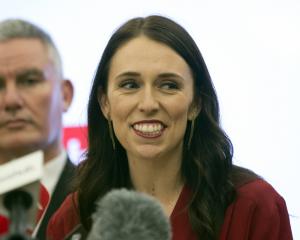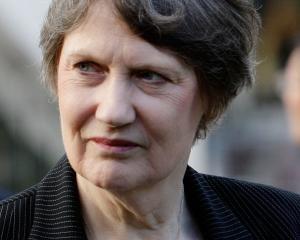Two losses in a week for a man who made a fortune winning: to Bradley Ambrose, the photographer he trashed in the 2014 election campaign; and no new flag.
John Key's concession that Mr Ambrose did not ‘‘behave improperly'' in recording (by accident, Mr Ambrose insisted) Mr Key's stagey chat with John Banks and that he (Mr Key) had harmed Mr Ambrose ‘‘personally and professionally'' was a humiliating climbdown.
Mr Key tried to minimise it by going beyond the agreed statement to say his payment to Mr Ambrose was ‘‘small''. Not good legal form.
Then Mr Key tried to minimise his flag-flunk: it had provoked a discussion on nationhood; he would support the Union Jack version and we should celebrate it. (Really?)
Actually, Mr Key's romp in the sandpit with $26million of your money was not about nationhood but about a badge or logo or, as the Australian-by-choice fern-version sketcher Kyle Lockwood put it, a beach towel. Nationhood runs deep, not once-over-lightly.
Mr Key has actually delayed a modern flag. But, of course, if we remove the Queen's Union Jack, that takes us to the real debate: whether to remove the Queen.
A first step could have been legislation for the people to choose the Governor-General instead of Mr Key's ‘‘captain's pick''.
A parliamentary supermajority could vet the candidates the first few times. But even the head of state is essentially ceremonial.
For real, legacy-building substance, Mr Key could set about ensuring all our children have true independence as full citizens under article 3 of the Treaty of Waitangi, able to take a full part in our society and economy because they have all had good parenting, nutrition and education and thus have a sense of real belonging.
The report handed to Welfare Minister Anne Tolley in January by a panel headed by Dame Paula Rebstock has given a strong direction.
Dame Paula headed the welfare working group from which ministers adopted in 2011 the actuarially-based forward liability investment approach (now ‘‘social investment'') targeted at those most likely to spend a long time on benefits.
The latest report was commissioned to fix failings in public support for ‘‘vulnerable'' children.
An interim report late last year canvassed sweeping changes which aim to penetrate the ‘‘silos'' into which the public service has organised itself and get chief executives and agencies really collaborating.
Even after two decades of worry about silos, the social development, health, education, justice and housing agencies have collaborated sporadically at best, more on the front line than at the top.
The proposed solution is said to be a separate new agency, of a new type, to act on all the intersecting and interacting deficits in ‘‘vulnerable'' children's lives.
The State Services Commission is said to have had doubts.
Effective delivery of whole-of-need services by such an agency is highly likely to involve also skilled ‘‘social entrepreneurs'' like the not-for-profit Wise Group.
Among Wise's under-the-radar despite-the-government successes are to have got nearly all Hamilton's homeless into proper houses.
It is also trialling a promising project with a school.
But bureaucrats have tangled such entrepreneurs in multi-dozen-page contracts, most only a year long.
This badly cramps innovation and strategic action. Minute auditing is required, uselessly consuming up to 30% of not-for-profits' managers' time.
Bureaucrats do this to spare ministers embarrassment when an enterprise goes amiss.
Twilight golf buried Helen Clark's flirtation with social entrepreneurship.
Yet, capitalist entrepreneurship, from which the term is borrowed, succeeds because it takes risks trying out new ideas, some of which fail.
Economists call this ‘‘creative destruction''.
Ms Clark's Labour ministers were ideologically chary of importing ideas from capitalism.
The supposedly pro-capitalist Key cabinet likes the ideas but not the risks. So there has been edgy wrangling among ministers over the Rebstock report, not helped by Mr Key's devolved management style.
Fear of leaks has wrapped the report and Cabinet papers in ultra-tight security, though the Cabinet is believed to have gone with most of the report, at least in principle.
Its response is expected next week. Bill English, backer of ‘‘social investment'', with its tightening focus on the ‘‘most vulnerable'', is believed to have wanted from-the-top direction but he is only deputy.
Mr Key used to say he wants disadvantaged kids action to be his legacy but he has yet to drive that.
And Mr English himself has got so tightly focused on achieving the last 1-2% of the 2012 ‘‘targets'' - and is so personally focused on getting a budget surplus - that he, too, risks falling behind the real game.
Where the real game has come into focus is - of all places - the Treasury. Not only is it, as noted here recently, exploring new economic ideas but a unit is exploring global and local ideas, including those of not-for-profits, for long-term transformational ‘‘social investment''.
Now, what was that about a flag?
● Colin James is a leading social and political commentator.












